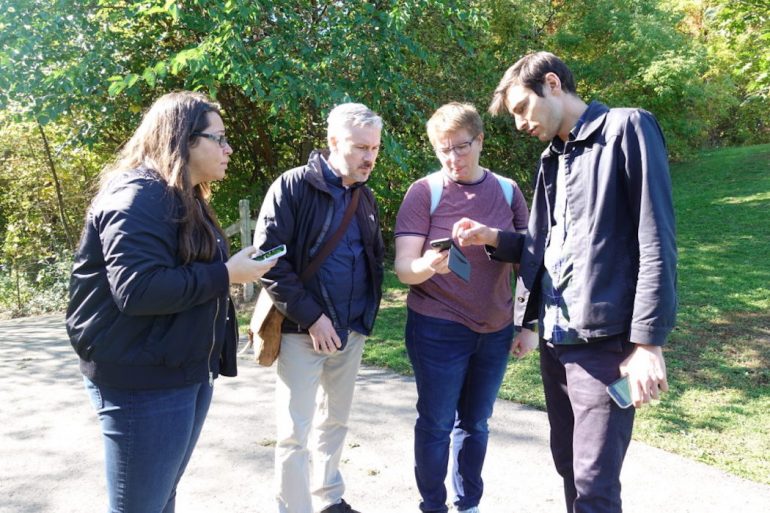Two Canadian startups have been named grantees of Microsoft’s AI for Accessibility initiative, a $25 million, five year grant program launched last year to help NGOs, academics, researchers, and inventors accelerate their work for people with disabilities.
“We have a huge opportunity and a responsibility to be making technology smarter and more useful for people with disabilities.”
AI for Accessibility wants to amplify human capability for people around the world with disabilities, by funding relevant projects that leverage and apply AI technology. The program is part of Microsoft’s broader AI for Good initiative. This new round of 11 grantees brings the total projects included in the program to 32, which are spread across 13 countries. The grants are given in the form of Microsoft Azure credits or cash that can be used for critical needs like trials and general overhead.
One of the Canadian companies receiving a grant is Balance for Autism, a Halifax-based startup developing an interactive program that offers information and activities designed to help healthcare providers learn more about Autism Spectrum Disorder (ASD).
Balance for Autism uses the most up-to-date evidence and expertise from practicing healthcare providers, as well as the families of children with ASD. It hopes to address the factors that can either help or get in the way of healthcare providers offering the best possible care for youth with ASD.
Another grant recipient is iMerciv, which is developing MapinHood, a navigation app for pedestrians who are blind or have low vision. MapinHood will audibly notify a user of hazards to avoid while walking, as well inform them on what they might need along the way, like water fountains, benches, or ramps. The technology is based on machine learning, crowdsourced information, and open-source data from local law enforcement.
“Vision loss affected our families, and we saw an opportunity to create a technological solution that would impact that community,” said Arjun Mali, iMerciv’s co-founder.
iMerciv focuses on the orientation and mobility needs of blind, deaf-blind, and visually impaired communities around the world. The company is based in Toronto and was founded in August 2014. It has received support from the Ontario Centres of Excellence, the University of Toronto, and the Ontario Brain Institute, among others.
RELATED: AccessNow receives $2.7 million from federal government for accessibility platform
Another one of iMerciv’s products is BuzzClip, a wearable device for those living with blindness or vision loss. The device uses ultrasound to identify obstacles in a user’s path, and informs the user of these obstacles through vibrations, allowing them to navigate around any encountered obstructions.
“Our focus is on personalization, making the app as flexible and as customizable as it can be,” said Bin Liu, co-founder and CEO of iMerciv. “With navigation for pedestrians in general, and especially for people with disabilities, you cannot have a single solution that fits all needs.”
Mary Bellard, Microsoft senior architect lead for accessibility noted that there is both opportunity and a responsibility to make technology smarter for people with disabilities. “The amount of potential that there is for software or hardware to better meet the needs of people with disabilities, and to raise the bar of what customers can come to expect of the role technology could play in their lives, is just an amazing opportunity,” she stated.
This year’s final deadline for submission of applications for Microsoft’s AI for Accessibility grants is November 13. Microsoft accepts proposals on a rolling basis with grants awarded each quarter.
Image courtesy iMerciv via Microsoft

